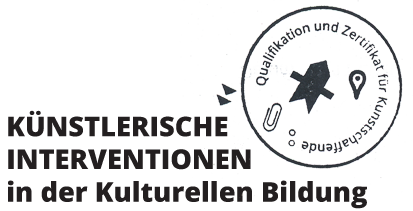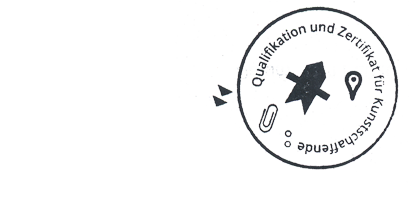


AITSONA-DAITSONA: Creating Communal Stages – A workshop based on Aitsona-Daitsona’s theatre work with teachers and children in Georgia
AITSONA-DAITSONA is Georgia’s first emancipatory touring theatre for children and was founded by the artists and theatremakers Mareike Wenzel, Mariam Gabritchidze, Lily Mamulashvili and Natia Kavtaradze in 2017. Our aim is to establish and promote new emancipatory theatre for children and young people in Georgia as well as to create an inclusive and participatory platform for theatre and arts in education that reaches beyond the cities and into the Georgian regions. We see theatre as a powerful tool for change, empowerment and education, and as a social event, bringing people together and creating solidarity.
AITSONA-DAITSONA’s mission “A Stage For Everyone” is to make theatre and culture accessible to all and also to include all in creating theatre and art. We are working with children and young people horizontally, including them in decision-making processes and working with them, and not just for them. We take their ideas, problems and interests seriously, and try to find creative ways of discussing them together on stage and beyond. We want to reach and include children and young people who normally don’t have access to many cultural events and theatre performances, hence our special focus on the regions.
We not only perform plays, we also run theatre workshops for children and young people as well as for teachers. Our training programme for teachers offers a toolkit of inclusive theatre methods that can be used in different classes promoting creative, holistic and inclusive learning and teaching methods. In these workshops we give teachers different tools to include creative methods in classrooms and also devise own work with children. Together with the teachers, we try to rethink classical teaching and classroom structures, give space to unlearn them and develop new methods together.
After an introduction of our company, in our workshop at the Symposium, we will discuss our work and artistic approaches, and we will look more closely at different methods of participation and inclusion, and also at the pitfalls that this work bears. We will discuss the importance of the inclusion of teachers in our work and share our methods and strategies. There often is a notion in arts education that teachers are rather seen as an obstacle then allies when working as artists at schools. We want to challenge this view and discuss the importance of becoming allies with teachers and also working horizontally together with them towards new holistic forms of education.
In the first part of the workshop, we will give an overview of the different fields of our work and set the frame. In the second part, we will look at concrete exercises, work processes, methods and examples of our work and discuss the questions: Who are our allies? Where do we set the focus? Where to start and how to initiate participatory processes? Where are the limits? What are the different roles we have to take on? How to create an open and safe space?
The workshop will have a practical part in which the participants have the possibility to explore these questions in different exercises. We want to create a space to explore and exchange experiences together and create new visions for cultural education.